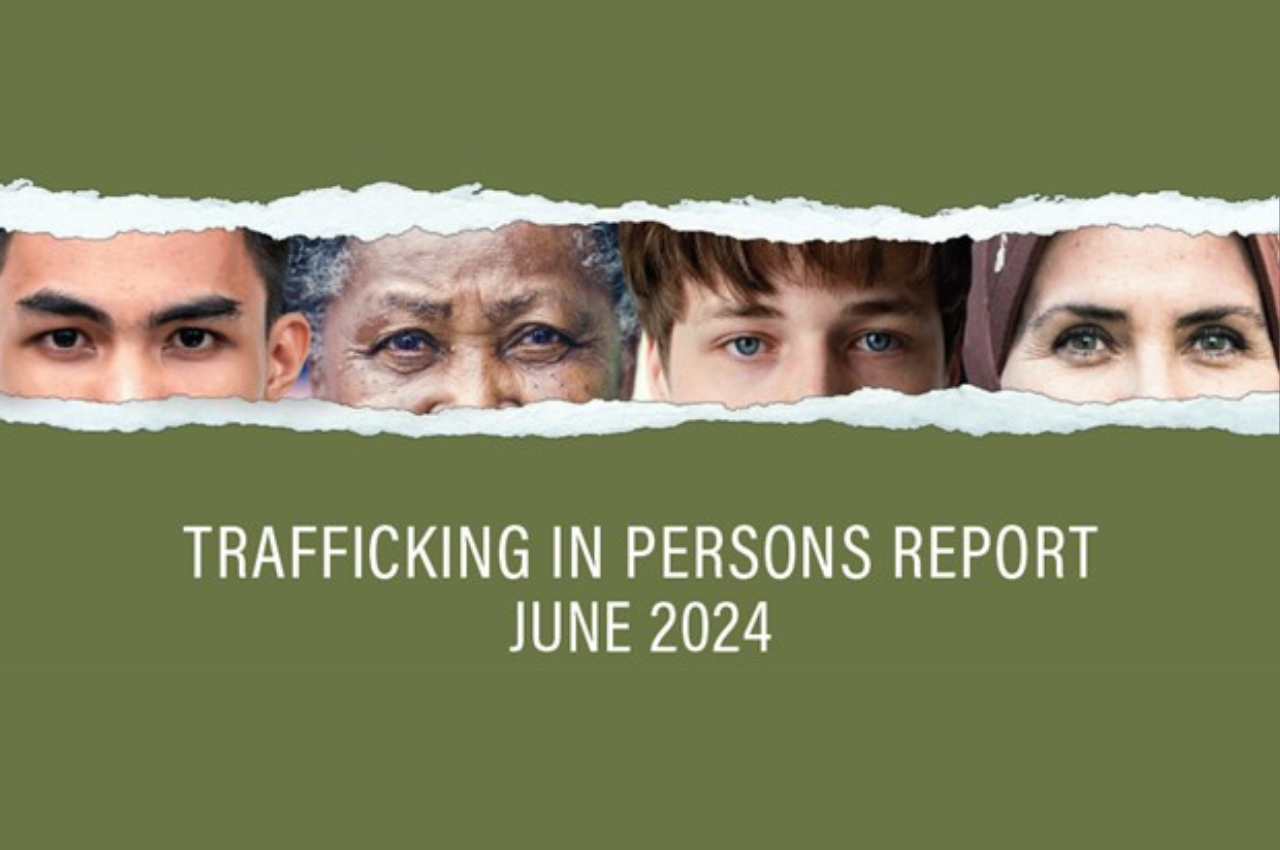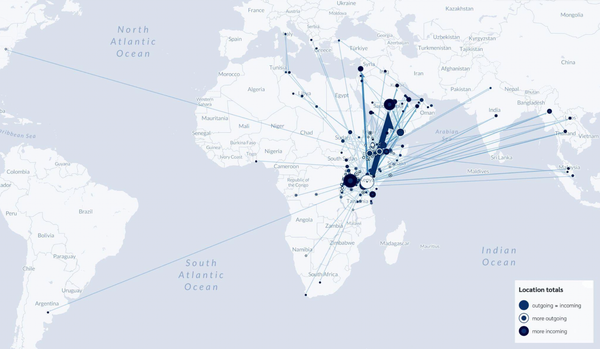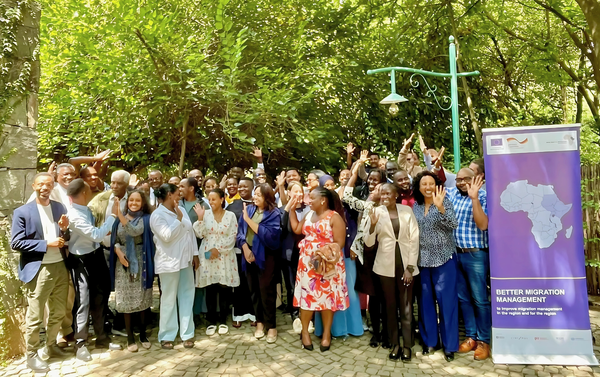This year’s TIP Report urges multi-stakeholder collaboration on technology-based trafficking

This year’s TIP Report highlights technology’s role in both trafficking and anti-trafficking activities, leaders vow to strengthen protection efforts in the Indo-Pacific region, and Canadian stakeholders issue guidelines on the reporting of gender-based violence.
U.S. Secretary of State Antony Blinken released the 2024 Trafficking in Persons Report (TIP Report) yesterday, emphasizing the growing role of technology in both facilitating exploitation and countering human trafficking.
Traffickers have widened their reach by using digital platforms to communicate with and recruit victims globally, which has created a need for greater global coordination among anti-trafficking stakeholders and technology experts, the report states. These stakeholders face several challenges to coordinating a global response, however, including navigating diverse legal frameworks to address technology-facilitated human trafficking that transcends borders and jurisdictions, and the fact that traffickers take advantage of gaps, inadequacies, and loopholes in laws and regulations to enable their activities.
Constant evolution in digital technology and the ways in which it is being used also make it difficult to concentrate efforts or decipher trafficking indicators, because law enforcement agencies must continuously adapt their tactics, develop technical expertise, and collaborate with technology companies, says the report. Additionally, NGOs and service providers with data relevant to the field may struggle with how to effectively share information while considering data ownership and ensuring privacy is maintained and protected.
However, while digital tools have amplified the reach, scale and speed of trafficking, they also make it possible for advocates and law enforcement to raise greater awareness about the rights of workers and migrants, locate victims and perpetrators of online exploitation, and analyze large amounts of data to detect emerging human trafficking patterns. Organizations are using data analytic tools to help identify current trends in fraudulent recruitment, map complex supply chains for links to forced labour, and detect emerging human trafficking schemes, thereby bolstering identification, investigation, and prosecution efforts by integrating and analyzing data from multiple sources.
The report highlights a range of successful and promising technology-based innovations designed to strengthen the anti-trafficking response, noting that partnerships and the empowerment of communities most affected by human trafficking are key to combating the crime, examining, for example, how current efforts to prevent and address forced labour are buoyed by strategic partnerships with workers, including worker-led approaches to advancing labour rights.
This year’s TIP Heroes include Al Amin Noyon, manager at the BRAC Migration Welfare Centre in Bangladesh, where he has supported more than 34,000 trafficking survivors and migrants; Bolivian activist and lawyer Marcela Martinez, who has demonstrably changed the direction of Bolivian and regional efforts to combat trafficking in persons; Edith Murogo, founder of the Kenya-based Centre for Domestic Training and Development and a leading advocate for domestic workers’ rights; and Marijana Saviç, an activist dedicated to advancing women’s and girls’ rights in Serbia.
A notable change in the rankings was the upgrade of Malaysia to Tier 2 from the Tier 2 Watchlist, despite the concerns of international organizations that Bangladeshi workers have been duped into coming to Malaysia on promises of non-existent jobs. Activists expressed surprise at the upgrade, highlighting Malaysia’s systemic inability to meaningfully combat labour trafficking, ensure remediation for victims, or hold perpetrators accountable.
In the U.S., anti-modern slavery groups are calling on the public to urge legislators to review the report and request congressional hearings to examine its findings, and further to ask elected officials to reauthorize key components of the Trafficking Victims Protection Act (TVPA), the original legislation that established the TIP Office and set the mandate for an annual report.
Here’s a round-up of other noteworthy news and initiatives:
At the Sri Lanka Summit, leaders from the Bali Process Government and Business Forum committed to addressing modern slavery and human trafficking in the Indo-Pacific region, focusing on supply chain transparency and the protection of migrant workers. The summit emphasized the urgent need for ethical recruitment practices, regulatory mechanisms, and strong laws to safeguard human rights and combat forced labour, particularly highlighting the vulnerabilities of migrant workers.
Representatives from the U.S. and Zambia yesterday signed the U.S.–Zambia Partnership to Prevent Trafficking in Persons (P2P), a multi-year initiative to strengthen the efforts of the Zambian Government as it works with national stakeholders and civil society organizations on a sustainable, comprehensive, and coordinated response to human trafficking. While this is the first P2P globally, the U.S. Ambassador-at-Large to Monitor and Combat Trafficking in Persons has announced plans to sign future agreements with foreign governments.
Amnesty International’s new report highlights the activities of Egyptian Border Guard Forces, whose capacity to curb irregular migration and human trafficking was enhanced by an 80 million euro cooperation agreement with the EU in October 2022. Despite this agreement’s stated focus on rights-based protection-oriented approaches, the Border Guard Forces have been implicated in violations against Sudanese refugees.
Aura Freedom and a national network of gender-based violence (GBV) and media stakeholders have collaborated to create media guidelines for Canadian journalists, including a special section for reporting on sex trafficking. Through this work and by building upon existing feminist excellence, they aim to inspire a movement for transformative reporting of GBV, radically changing the way it is viewed and addressed in communities.
Last week, Thai and Chinese authorities met in Kunming to address the trafficking of Thai teenage girls for elderly care in China. The use of young Thai female workers is becoming popular among elderly Chinese who hire them for marriage, but some end up abandoned, causing problems that the Thai consulate in Kunming is now trying to resolve.
Three U.S. investigators from Hope for Justice highlight the intertwining of drug trafficking and human trafficking in a recent article, urging action against transnational crime groups exploiting both trades. They argue that these groups view human trafficking as a profitable expansion of their operations, emphasizing the urgent need for legislative reforms and enhanced law enforcement training to counter their activities effectively.
The Freedom Fund seeks proposals for an inception project targeting child exploitation in Uganda’s Karamoja region. The grant aims to support existing organizations in expanding or enhancing their efforts against various forms of child exploitation in the area.
The European Center for Constitutional and Human Rights’ business and human rights team in Berlin is currently seeking candidates for two positions: Co-Director and Senior Legal Advisor.




